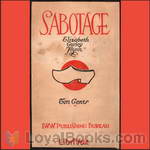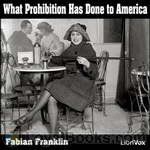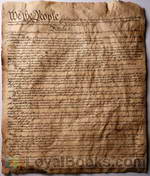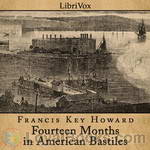|
Books Should Be Free Loyal Books Free Public Domain Audiobooks & eBook Downloads |
|
|
Books Should Be Free Loyal Books Free Public Domain Audiobooks & eBook Downloads |
|
Books on Politics |
|---|
|
Book type:
Sort by:
View by:
|
By: Elbert Hubbard | |
|---|---|
 Little Journeys to the Homes of the Great
Little Journeys to the Homes of the Great
LITTLE JOURNEYS TO THE HOMES OF AMERICAN STATESMENBy ELBERT HUBBARDBERT HUBBARD A little more patience, a little more charity for all, a little more devotion, a little more love; with less bowing down to the past, and a silent ignoring of pretended authority; a brave looking forward to the future with more faith in our fellows, and the race will be ripe for a great burst of light and life. --Elbert Hubbard It was not built with the idea of ever becoming a place in history: simply a boys' cabin in the woods... | |
By: Elizabeth Cady Stanton (1815-1902) | |
|---|---|
 Eighty Years and More; Reminiscences 1815-1897
Eighty Years and More; Reminiscences 1815-1897
Elizabeth Cady Stanton was one of the premier movers in the original women’s rights movement, along with Susan B. Anthony, her best friend for over 50 years. While Elizabeth initially stayed home with her husband and many babies and wrote the speeches, Susan went on the road to bring the message of the women’s rights movement to an often hostile public. When black men were given the vote in 1870, Susan and Elizabeth led the women’s rights establishment of the time to withhold support for a bill that would extend to black men the rights still denied for women of all colors... | |
 History of Woman Suffrage, Volume I
History of Woman Suffrage, Volume I
| |
By: Elizabeth Garver Jordan (1867-1947) | |
|---|---|
 The Story of a Pioneer
The Story of a Pioneer
| |
By: Elizabeth Gurley Flynn (1890-1964) | |
|---|---|
 Sabotage
Sabotage
Elizabeth Gurley Flynn (1890-1964) was a leading American socialist and feminist. Her book “Sabotage, the conscious withdrawal of the workers’ industrial efficiency” was written to explain the utility and legality of sabotage. | |
By: Ella Middleton Tybout (1871-1952) | |
|---|---|
 The Wife of the Secretary of State
The Wife of the Secretary of State
In this political thriller set at the turn of the 20th century, several lives, both of Washington insiders and those on the periphery, intersect over the issue of some stolen diplomatic papers. And what hidden secrets bind Mrs. Redmond, the wife of the Secretary of State, to the unscrupulous Count Valdmir, the Russian ambassador? Politics, power, and intrigue combine in this novel, first published in 1905. | |
By: Émile Faguet (1847-1916) | |
|---|---|
 The Cult of Incompetence
The Cult of Incompetence
| |
By: Emma Goldman (1869-1940) | |
|---|---|
 Anarchism and Other Essays
Anarchism and Other Essays
Chicago, May 4, 1886. In the Haymarket region of the city, a peaceful Labor Day demonstration suddenly turns into a riot. The police intervene to maintain peace, but they soon use violence to quell the mob and a bomb is thrown, resulting in death and injuries to scores of people. In the widely publicized trial that followed, eight anarchists were condemned to death or life imprisonment, convicted of conspiracy, though none of them had actually thrown the bomb. A young Russian immigrant, Emma Goldman, had arrived just the previous year in the United States... | |
By: Emma Guy Cromwell (1865-1952) | |
|---|---|
 Citizenship A Manual for Voters
Citizenship A Manual for Voters
| |
By: Enrico Ferri (1859-1929) | |
|---|---|
 Socialism and Modern Science (Darwin, Spencer, Marx)
Socialism and Modern Science (Darwin, Spencer, Marx)
| |
By: Errico Malatesta (1853-1932) | |
|---|---|
 Anarchy
Anarchy
Anarchy explained by the anarchist Errico Malatesta. | |
By: Étienne de La Boétie (1530-1563) | |
|---|---|
 Anti-Dictator: The Discours sur la servitude voluntaire
Anti-Dictator: The Discours sur la servitude voluntaire
Étienne de La Boétie was the closest friend of Michel de Montaigne and the subject of the latter's famous essay "On Friendship." Here, however, he tackles a different, more impersonal relationship: that of ruler and ruled. The argument in this work is encapsulated in this quote: "A people enslaves itself, cuts its own throat, when, having a choice between being vassals and being free men, it deserts its liberties and takes on the yoke, gives consent to its own misery, or, rather, apparently welcomes it... | |
By: Eugene V. Debs (1855-1926) | |
|---|---|
 Labor and Freedom
Labor and Freedom
"While there is a lower class I am in it; While there is a criminal class I am of it; While there is a soul in prison I am not free." ( Eugene V. Debs) This collection of essays charts the thought and character of Eugene V. Debs. Debs was an influential early American labor leader, a founding member of the Industrial Workers of the World (IWW), and a Presidential candidate for the Socialist Party of America. In these essays, Debs employs his characteristically fiery rhetoric in a spirited defense of worker's rights, organized labor, women's suffrage, class solidarity, and the principles of economic socialism. | |
By: Eva March Tappan (1854-1930) | |
|---|---|
 World’s Story Volume VI: Russia, Austria-Hungary, the Balkan States and Turkey
World’s Story Volume VI: Russia, Austria-Hungary, the Balkan States and Turkey
This is the sixth volume of the 15-volume series of The World’s Story: a history of the World in story, song and art, edited by Eva March Tappan. Each book is a compilation of selections from prose literature, poetry and pictures and offers a comprehensive presentation of the world's history, art and culture, from the early times till the beginning of the 20th century. Topics in Part VI include the Russian Empire, the fights for independence in Hungary and the Balkan states and the politics of early Turkey... | |
By: F. J. C. (Fossey John Cobb) Hearnshaw (1869-1946) | |
|---|---|
 Freedom In Service Six Essays on Matters Concerning Britain's Safety and Good Government
Freedom In Service Six Essays on Matters Concerning Britain's Safety and Good Government
| |
By: Fabian Franklin | |
|---|---|
 What Prohibition Has Done to America
What Prohibition Has Done to America
In What Prohibition Has Done to America, Fabian Franklin presents a concise but forceful argument against the Eighteenth Amendment of the U.S. Constitution. Beginning in 1920, this Amendment prohibited the sale and manufacture of alcoholic beverages in the United States, until it was repealed in 1933. Franklin contends that the Amendment “is not only a crime against the Constitution of the United States, and not only a crime against the whole spirit of our Federal system, but a crime against the first principles of rational government... | |
By: Founding Fathers of the United States | |
|---|---|
 The Constitution of the United States of America, 1787
The Constitution of the United States of America, 1787
The Declaration of Independence was signed on July 4, 1776. It announced that the thirteen American colonies, who were at war with Great Britain in the American Revolutionary War, no longer considered themselves part of the British Empire. They now called themselves a new nation, The United States of America. This famous document went on to become a well-known keystone of the human rights movement. However, the newly formed state had no real identity or philosophy and were merely a loose collection of states that had freed themselves from colonial rule... | |
 The Declaration of Independence of the United States of America
The Declaration of Independence of the United States of America
Declaration of Independence is the document in which the Thirteen Colonies declared themselves independent of the Kingdom of Great Britain and explained their justifications for doing so. It was ratified by the Continental Congress on July 4, 1776. | |
By: Frances Burney (1752-1840) | |
|---|---|
 The Wanderer
The Wanderer
This is the fourth and final novel by Fanny Burney, the author of Evelina, Cecilia, and Camilla. "Who is "Miss Ellis?" Why did she board a ship from France to England at the beginning of the French revolution? Anyway, the loss of her purse made this strange "wanderer" dependent upon the charity of some good people and, of course, bad ones. But she always comforts herself by reminding herself that it's better than "what might have been..." This is not only a mystery, not at all. It's also a romance which reminds readers of novels by Jane Austen... | |
By: Francis Archibald Bruton (1860-1929) | |
|---|---|
 Three Accounts of Peterloo
Three Accounts of Peterloo
A companion volume to F.A. Bruton's 'The Story of Peterloo', the full title of this short collection is 'Three Accounts of Peterloo by Eyewitnesses, Bishop Stanley, Lord Hylton, John Benjamin Smith with Bishop Stanley's Evidence at the Trial'. The three contemporary accounts, each with a short introduction by the editor, give different perspectives on the events of 16 August 1819, when a troop of Hussars accompanied by the local Yeomanry rode into a peaceful reform rally at St. Peter's Fields, Manchester, leaving 18 dead and more than 700 injured. | |
By: Francis Bacon (1561-1626) | |
|---|---|
 The New Atlantis
The New Atlantis
In 1623, Francis Bacon expressed his aspirations and ideas in New Atlantis. Released in 1627, this was his creation of an ideal land where people were kind, knowledgeable, and civic-minded. Part of this new land was his perfect college, a vision for our modern research universities. Islands he had visited may have served as models for his ideas. | |
By: Francis Key Howard (1826-1872) | |
|---|---|
 Fourteen Months in American Bastiles
Fourteen Months in American Bastiles
Francis Key Howard recounts in this book his life as a political prisoner of the United States. He points out that he was held captive at the same location where his grandfather was inspired to write the national anthem about the "land of the free," which makes a very stunning contrast. The sufferings that were imposed on him by the Union forces had the effect of solidifying his determination to resist unjust governmental dictates. (Introduction by Katie Riley) | |
By: François Hotman (1524-1590) | |
|---|---|
 Franco-Gallia Or, An Account of the Ancient Free State of France, and Most Other Parts of Europe, Before the Loss of Their Liberties
Franco-Gallia Or, An Account of the Ancient Free State of France, and Most Other Parts of Europe, Before the Loss of Their Liberties
| |
By: Frank B. Lord | |
|---|---|
 Woodrow Wilson's Administration and Achievements
Woodrow Wilson's Administration and Achievements
| |
By: Frank Norris (1870-1902) | |
|---|---|
 The Octopus
The Octopus
Frank Norris based his 1901 novel The Octopus (A Story of California) on the Mussel Slough Tragedy of 1880, a bloody conflict between ranchers and agents of the Southern Pacific Railroad. The central issue was over the ownership of the ranches, which the farmers had leased from the railroad nearly ten years earlier with intentions of eventually purchasing the land. Although originally priced at $2.50 to $5 per acre, the railroad eventually opened the land for sale at prices adjusted for land improvements; the railroad’s attempts to take possession of the land led the ranchers to defend themselves as depicted in the book. | |
By: Franklin D. Roosevelt (1882-1945) | |
|---|---|
 Franklin Delano Roosevelt's First Inaugural Address
Franklin Delano Roosevelt's First Inaugural Address
| |
 State of the Union Address
State of the Union Address
| |
By: Franklin Hichborn (1869?-1964) | |
|---|---|
 Story of the Session of the California Legislature of 1909
Story of the Session of the California Legislature of 1909
| |
By: Franklin Knight Lane (1864-1921) | |
|---|---|
 Letters of Franklin K. Lane
Letters of Franklin K. Lane
| |
By: Franklin Pierce (1804-1869) | |
|---|---|
 State of the Union Address
State of the Union Address
| |
By: Frederic Austin Ogg (1878-1951) | |
|---|---|
 The Governments of Europe
The Governments of Europe
| |
By: Frédéric Bastiat (1801-1850) | |
|---|---|
 Law
Law
"The law perverted! The law—and, in its wake, all the collective forces of the nation. The law, I say, not only diverted from its proper direction, but made to pursue one entirely contrary! The law becomes the tool of every kind of avarice, instead of being its check! The law guilty of that very inequity which it was its mission to punish! Truly, this is a serious fact, if it exists, and one to which I feel bound to call the attention of my fellow-citizens." —Frédéric Bastiat | |